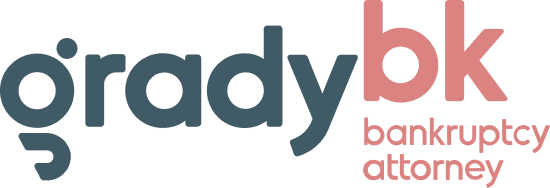If you have decided that bankruptcy is the best option for your financial situation in Central New York or North Country, you will need to understand how this will impact different aspects of your finances. For instance, you will need to know how to best protect your earned income tax credit whether you decide to file for Chapter 7 or Chapter 13 bankruptcy.
At Grady BK, PLLC, we strive to provide our clients in Central New York and North Country with the compassionate legal guidance they need throughout their bankruptcy proceedings. We understand that this process can feel very complex and overwhelming, which is why we will help you every step of the way so that you can proceed with confidence. In this article, we will be discussing what an earned income credit is, the earned income tax credit eligibility requirements, and how different types of bankruptcy can impact your credit funds.
What is an Earned Income Credit?
An earned income credit is a tax credit provided for low and moderate-income working individuals and couples. It is primarily given to those with children and helps to boost the income of workers who are paid low wages as a way of offsetting federal payroll and income taxes. You may meet the earned income credit qualifications if you:
- Qualified and claimed the federal earned income credit.
- Did not claim the non-custodial parent earned income credit.
Something to keep in mind is that the earned income tax credit qualifications can change yearly and may have different qualifications for specific individuals, such as members of the military or clergy.
The earned income tax credit table can help you better understand if you qualify and, if so, how much you could get. Here is a breakdown of the maximum credit amounts most individuals can expect to receive as of 2024:
- $632 if you do not have any children.
- $4213 if you have one child.
- $6960 if you have two children.
- $7830 if you have three or more children.
You could also qualify for multiple tax credits at one time as long as they do not cancel each other out. For instance, if you meet the earned income credit limits, you may also qualify for education credit, child and dependent care credit, or child tax credits and credits for other dependents.
Can Bankruptcy Court Take Your EIC?
If you qualified for and claimed the earned income credit, you may be able to protect this from being distributed to your creditors during bankruptcy. However, this will require a different strategy depending on whether you are filing for Chapter 7 or Chapter 13 bankruptcy.
The very first thing you should do before starting the bankruptcy process is to hire a bankruptcy attorney in Central New York and North Country. An attorney can help you decide what the best option is for your situation, as well as help you find a way to better protect your earned income tax credit.
Chapter 7 Bankruptcy
Chapter 7 bankruptcy is an option often used by individuals who cannot afford to repay their creditors for the debts that they owe. The process involves distributing certain assets to pay creditors back while protecting you from collection efforts. It is often focused on exempt and nonexempt assets, allowing you to still keep some of your assets even after going through the bankruptcy process.
It may be possible to protect your EIC if you file for Chapter 7 bankruptcy, but you need an exemption to do this. One example of an exemption specifically provided in New York is the wildcard exemption. The wildcard exemption allows you to protect up to $1175 worth of your earned income credit funds if you have not also claimed the homestead exemption.
Another exemption you may be able to take advantage of to better protect your earned income credit is by applying for the New York cash or banking account balance exemption, which can help you protect up to $6000.
A bankruptcy attorney will be able to help you look into the different bankruptcy exemptions provided in Chapter 7 bankruptcy that you may qualify for.
Chapter 13 Bankruptcy
Chapter 13 bankruptcy is a reorganization option that is also called a wage earners plan. It involves a court ordered repayment plan that allows you to make monthly payments over a 3 to 5 year timeframe to pay back your creditors while protecting you from collection efforts. Chapter 13 bankruptcy is usually the better option for individuals who earn too much to qualify for chapter 7 bankruptcy.
If you decide to file for Chapter 13 bankruptcy, it is very possible that you can keep your earned income credit when you file. However, this may not be possible to do in the following years as you are on your repayment plan since a portion of your earned income credit funds may have to go towards your monthly payments over the next 3 to 5 years, depending on the repayment plan you have in place.
New York’s Top Compassionate Bankruptcy Attorney
Filing for bankruptcy in Central New York or North Country can be a stressful process, which is why you should never attempt to do this on your own. At Grady BK, PLLC, we will assist you every step of the way, helping you file for bankruptcy, protect certain funds and assets, and navigate how this will impact your finances in the future. Having a Central New York and North Country bankruptcy attorney on your side will allow you to proceed with confidence and peace of mind.
At Grady BK, PLLC, we have extensive experience with bankruptcy proceedings in New York, and we understand how complex every bankruptcy case is. Because of this, we provide personalized assistance so that each and every one of our clients feels heard and seen.
Contact us today at 315-299-9005 to discuss your financial situation with a bankruptcy attorney. Our team at Grady BK, PLLC, is ready to provide you with the legal assistance you need as you prepare to file for bankruptcy.




